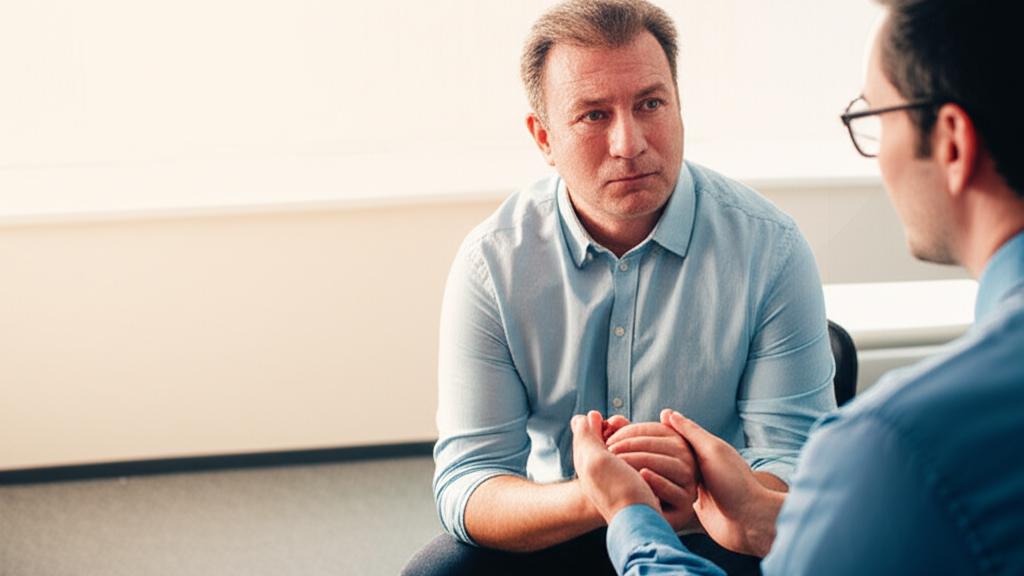I remember a patient, let’s call him John. He shuffled into my office, looking a bit embarrassed, really. For months, he’d been ignoring some… well, some ‘down there’ troubles. “It’s probably just stress, Doc,” he’d mumble, avoiding eye contact. But that ‘stress’ was making his days pretty miserable, with urgent trips to the bathroom and a constant feeling of unease. That gentle suggestion to see a specialist, a urologist, well, it truly turned things around for him. It’s a conversation that can feel a bit awkward, I know, but it’s often the first step towards feeling a whole lot better. So, let’s talk about what a urologist does and when you might want to chat with one.
So, What Exactly is a Urologist?
Simply put, a urologist is a doctor who’s an expert in the urinary system. Think of this system as your body’s amazing cleaning and plumbing crew. It filters out waste and toxins, then escorts them out. This system includes your:
- Bladder (the muscular sac that stores urine)
- Kidneys (the bean-shaped organs that act as master filters)
- Ureters (the thin tubes that carry urine from the kidneys to the bladder)
- Urethra (the tube that lets urine out of your body)
But that’s not all. A urologist also handles conditions affecting the reproductive organs in both men (penis, testes, prostate) and women, as well as the adrenal glands, which sit right on top of your kidneys. You see, our urinary and reproductive systems are pretty closely linked, which is why you might hear the term “genitourinary” system.
Urologists vs. Nephrologists: What’s the Difference?
This is a common point of confusion. A nephrologist is a medical specialist who focuses on conditions that affect kidney function, like diabetes or chronic kidney disease, and manages them with non-surgical treatments like medication or dialysis. A urologist, on the other hand, is a surgical specialist who treats the full range of urinary tract diseases in both men and women, often with surgery when needed.
What Kinds of Things Does a Urologist Treat?
Urologists see a wide range of conditions, from common annoyances to more serious illnesses. These can affect anyone, or sometimes be specific to men or women. Some common reasons people see a urologist include:
- Frequent or recurrent urinary tract infections (UTIs).
- Trouble with bladder control, which we call urinary incontinence (e.g., leaking when you laugh or sneeze).
- Seeing blood in the urine (hematuria), which should always be investigated.
- For men, an enlarged prostate, also known as benign prostatic hyperplasia (BPH), causing a weak stream or frequent urination.
- Interstitial cystitis, a chronic condition causing bladder pressure and pain.
- Kidney stones. Many of my patients say the pain from passing a stone is one of the worst they’ve ever felt.
- Cancers of the bladder, kidneys, prostate, and testicles.
- Erectile dysfunction (ED) and other sexual health concerns.
- Pelvic organ prolapse in women, where organs in the pelvis can shift or drop.
When Should You Think About Seeing a Urologist?
As your family doctor, I’d often be the first person you talk to. But there are definitely times when seeing a urologist is the next best step. You might consider it if you’re experiencing:
| Symptom Area | Specific Signs to Watch For |
|---|---|
| Trouble Urinating | Pain or burning when you pee, a weak or interrupted stream, difficulty getting started, cloudy urine, or seeing blood in your urine. |
| Changes in Habits | Needing to urinate all the time, especially at night; a constant, sudden, and overwhelming feeling of urgency; or leaking urine when you cough, sneeze, or exercise. |
| Pain or Discomfort | Persistent pain in the pelvis, lower abdomen, or sharp, radiating pain in the lower back or sides, which could indicate kidney stones. |
| Sexual Health Concerns | For men, difficulty getting or maintaining an erection (ED) or a lump in a testicle. For couples, concerns about male infertility. |
Your First Urologist Visit: What to Expect
Okay, so you’ve made an appointment. What happens next? First off, be ready to have an open conversation about why you’re there. It’s super helpful if you jot down any questions you have or a list of your symptoms beforehand. They’ll also ask about your medical history and any medications you’re taking.
To get to the bottom of things, your urologist will likely suggest some tests. These might include:
- A physical examination. For men, this often involves a digital rectal exam to check the prostate. For women, it could be a pelvic exam to assess the pelvic floor muscles.
- Urinalysis (a urine test) to check for infection, blood, or other abnormalities. Pro tip: You might want to drink some water before your appointment, as they’ll likely ask for a urine sample right there!
- Blood tests to check kidney function or look for markers like PSA (prostate-specific antigen).
- Imaging tests like an ultrasound or CT scan to get a detailed look at your kidneys, bladder, or prostate.
Try not to worry too much about these. Each step is about gathering information to help you. The urologist will always discuss what’s needed and why.
Take-Home Message
- A urologist is your specialist for the urinary system (kidneys, bladder) and male reproductive organs.
- Persistent urinary symptoms like pain, urgency, or blood in the urine are clear signs to see a urologist.
- They treat a wide range of common conditions, including UTIs, kidney stones, prostate issues, and incontinence.
- Don’t be embarrassed to discuss sexual health concerns like ED or infertility; they are medical issues.
- Reaching out to a urologist is a positive and proactive step for your health.


